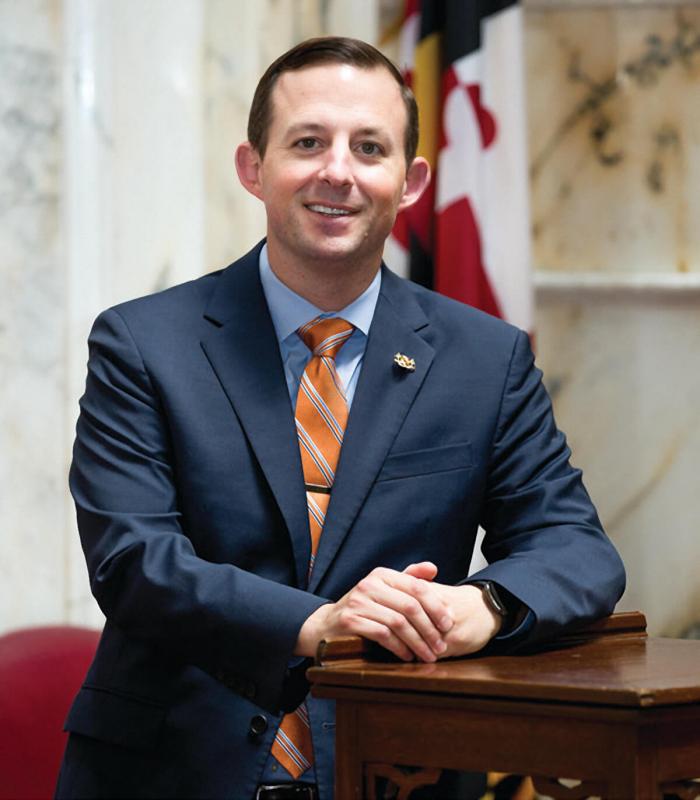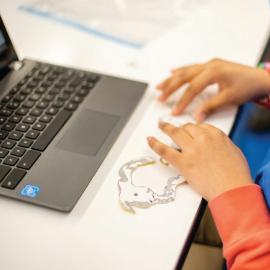
Bill Ferguson (Baltimore ’05): Making Sure Education is Centered in Annapolis
President, Maryland State Senate
State Senate President Bill Ferguson (Baltimore ’05) almost became a campaign manager, not a candidate. In 2008, he registered to attend a three-day training for political organizing, sponsored by Leaders for Educational Equity (LEE), and was placed on the candidate track.
“It was the first time I’d ever remotely thought about the possibility of being a candidate,” he says.
Two years later, Ferguson was preparing to graduate from law school while serving as the special assistant to the CEO of CitySchools. The federal initiative Race to the Top had districts and states scrambling to compete for federal dollars, but Ferguson observed a disconnect: “I saw things in Annapolis that didn’t reflect the things the Baltimore school system needed.” He began researching his own representative and didn’t see an advocate for City Schools. He had dinner with TFA alum Taylor Stewart (Baltimore ’07) the LEE director who’d encouraged him to attend the Philadelphia training two years prior. There was a state senate election happening in his district that fall—just six months away. 
Ferguson became the youngest elected state senator in Maryland history. One decade later, he’d be sworn in as the presiding officer of that body. That a meteoric political rise like Ferguson’s came down to happenstance seems hard to imagine. But for Ferguson, it was rooted in his values.
“I ran entirely on the basis of something I cared about: improving educational outcomes,” he says. “I only focused on education. I was the ‘education guy.’”
As evidence, Ferguson points to one of his proudest legislative wins: the 21st Century Schools initiative, which is providing more than $1 billion in new school facilities for Baltimore City. When he and others first pitched the concept in 2010, they were told it was impossible. He partnered with fellow TFA alum Shannen Coleman Siciliano (Baltimore ’03) and the ACLU to build a coalition. In 2012, the legislature cited a lack of funds. Their coalition spent the summer devising and championing a bottle tax, and in 2013, the legislature passed the initiative.
“Now we’ve built more new schools than any jurisdiction in the country,” says Ferguson.